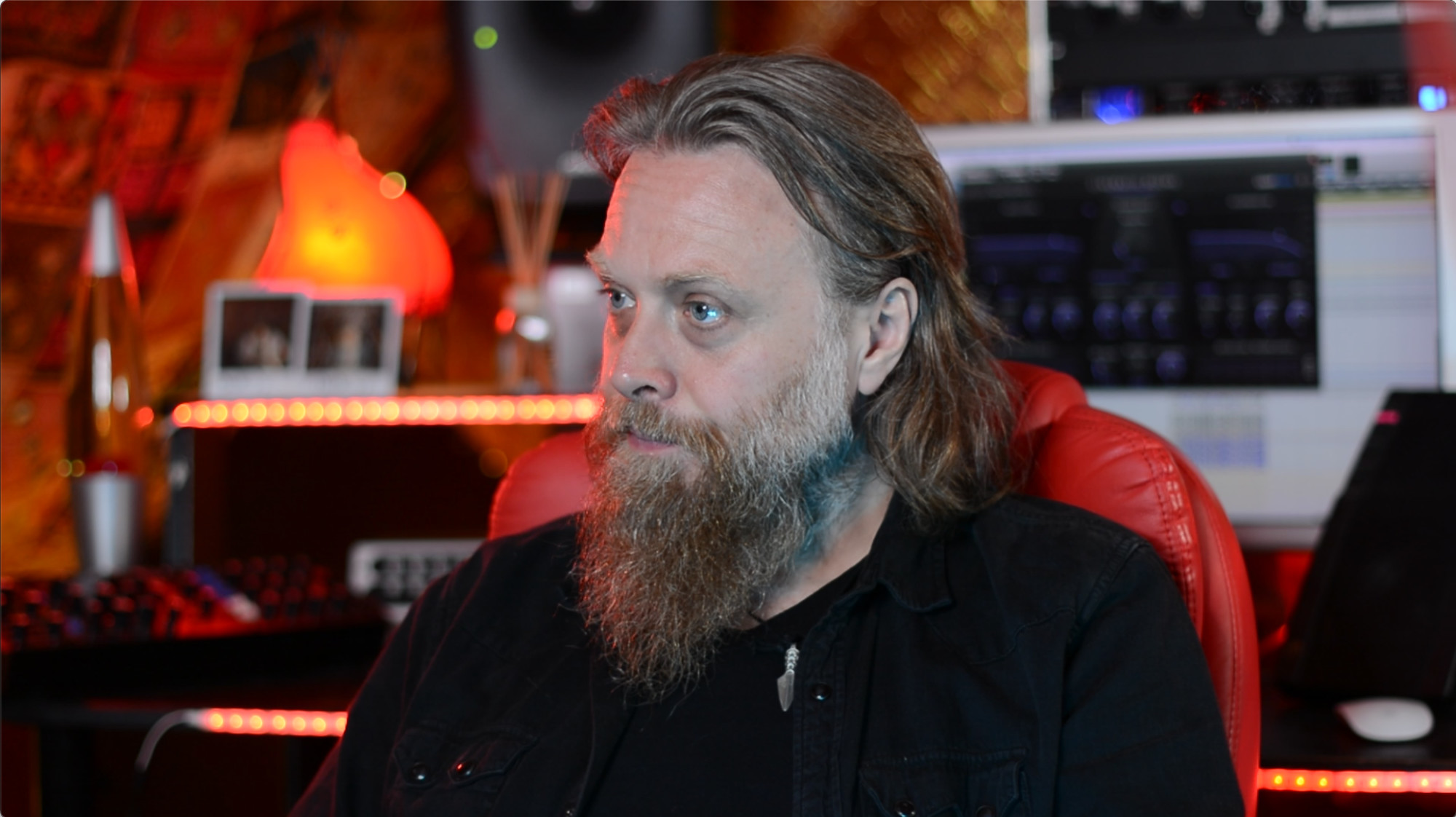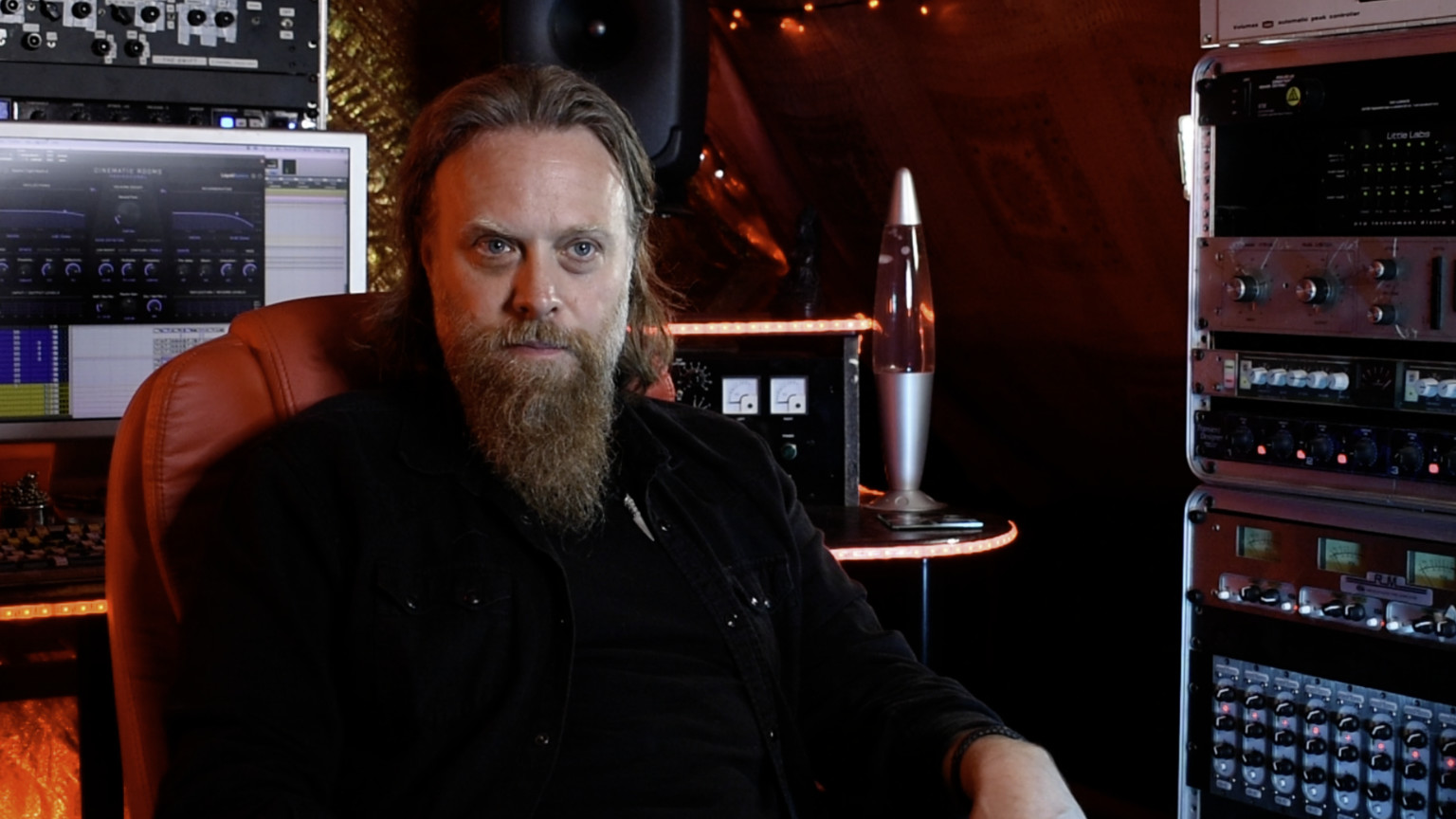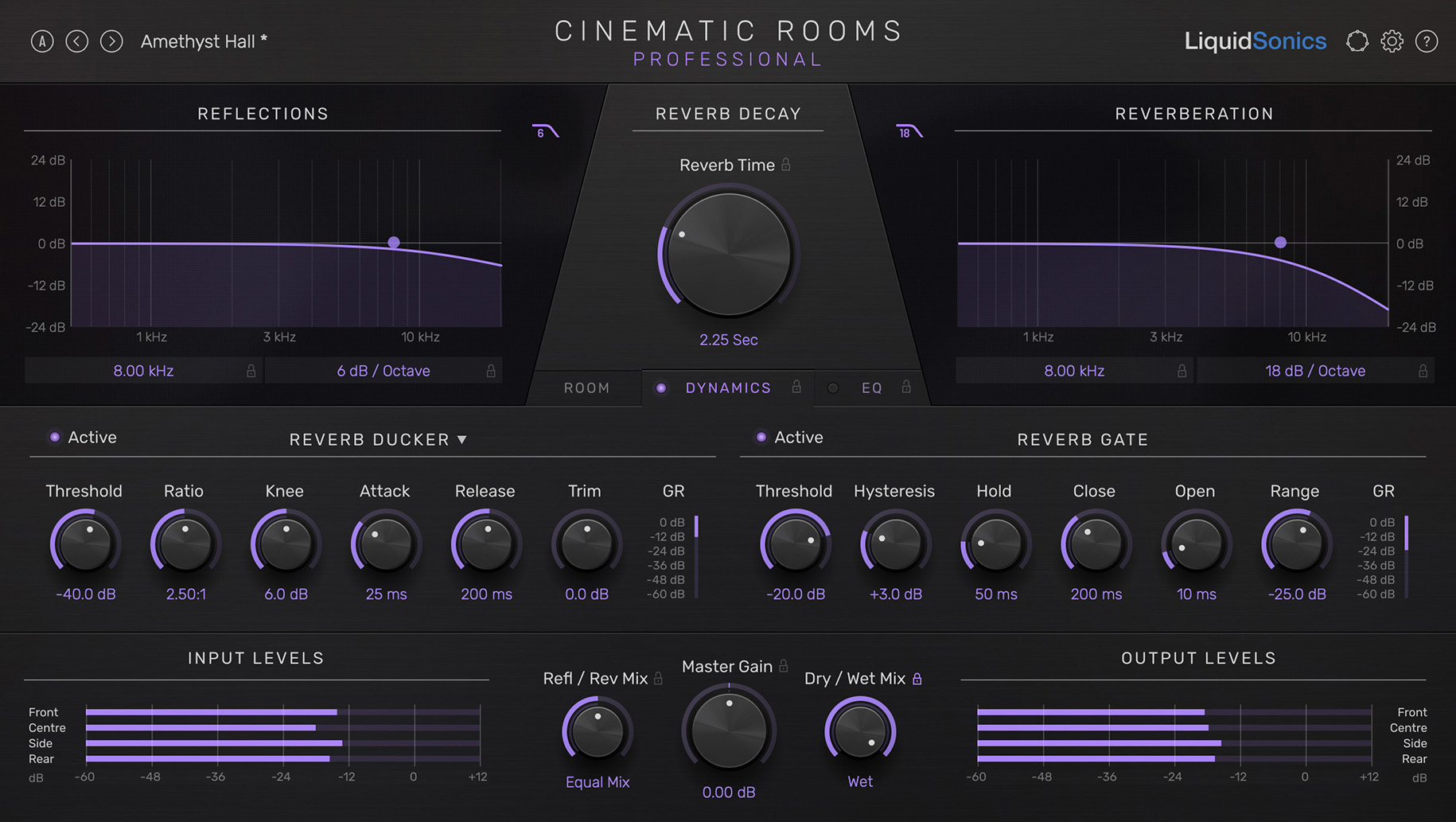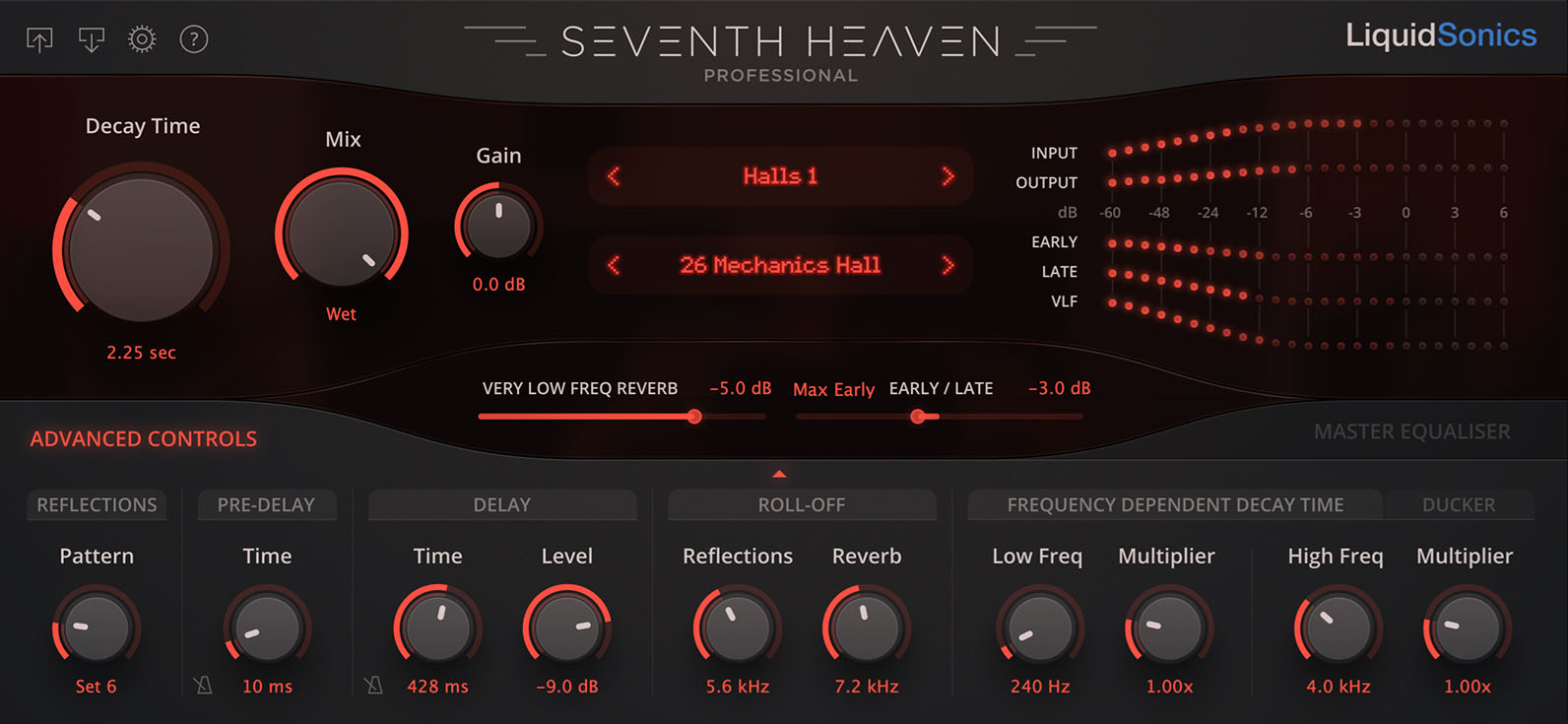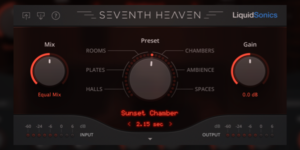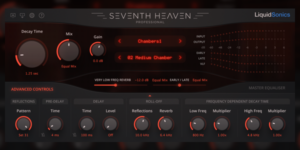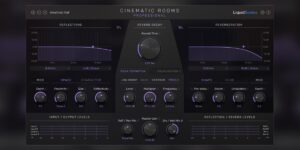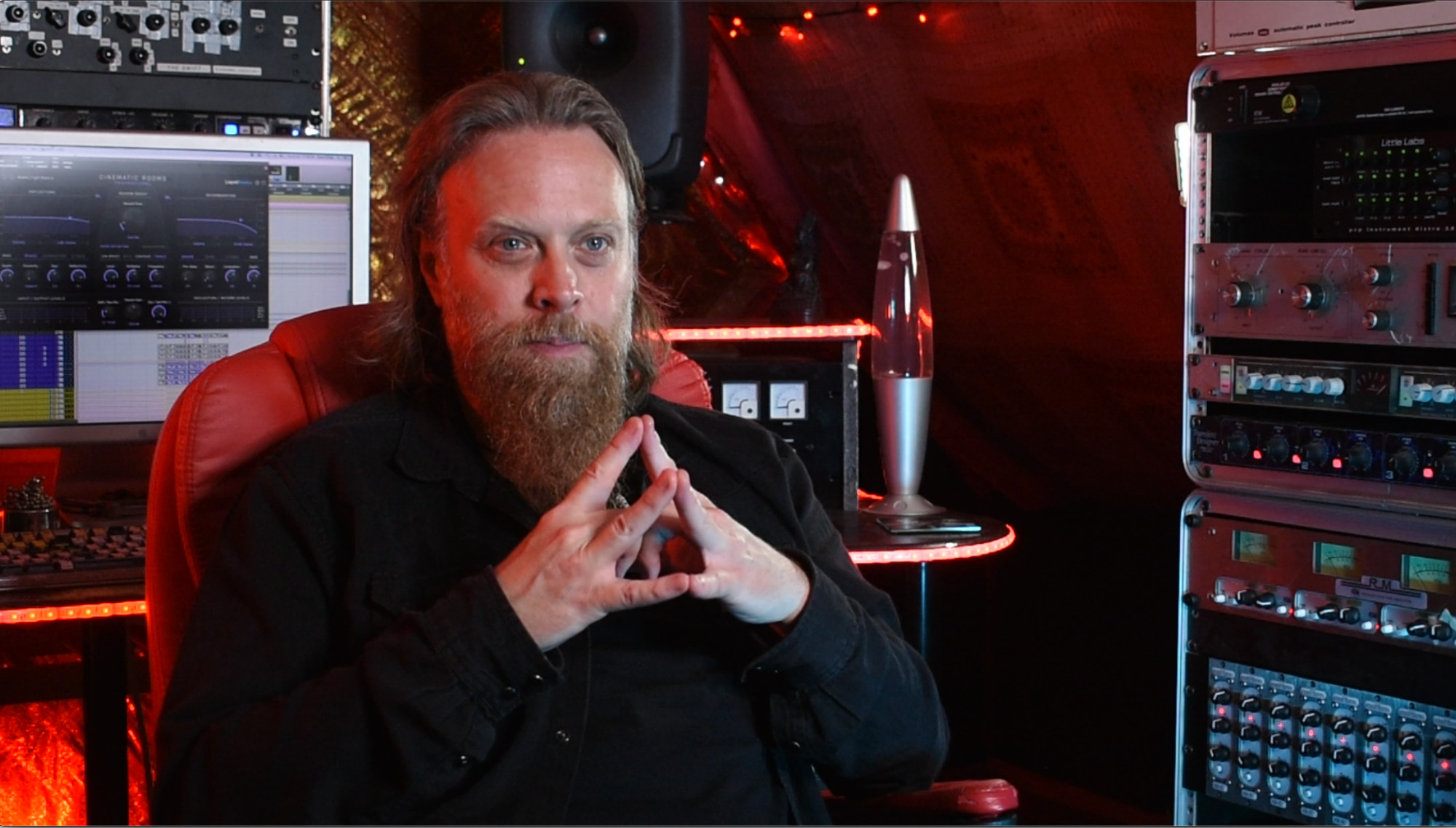
British multi-award-winning record producer and mixer, Dave Eringa, has worked with some huge names in his impressive 30+ year career including the Manic Street Preachers, The Proclaimers, The Who, Roger Daltrey, Idlewild, Jamie Webster and Kylie Minogue to name a few.
From a childhood surrounded by musical instruments to his serendipitous encounter with a seasoned producer on a transatlantic flight, Dave’s eagerness to wade in and learn the art of music production has proved to be the key to his ultimate success.
We were fortunate to spend some time with Dave recently to learn more about his 30+ years working with The Manic Street Preachers, why he rates Rockfield Studios as his second home and how he uses LiquidSonics reverbs…
Tell us how this all started – were your family musical?
My parents were not musical but my dad bought a home organ and I taught myself to play with the organ manuals. He had books of music from The Sound Of Music and stuff – I could play My Favourite Things. So, there was an instrument in the house and then later, my primary school were getting a new piano and for some reason we got given the old piano. I really got into music at around age 11-12, we just started a band together and played really shit cover versions and I just lived for band practice on a Friday night or a Saturday afternoon because I had a pretty shitty time at school. It was very much a sports school so being in a band was not cool, and I was the least sporty kid, last to be picked for cross country and all of that. I got into rock and metal as an escape, like many people you live your life vicariously through rock stars.
When did you switch sides and go to the other side of the glass?
We only went on two foreign holidays as a kid. One of them was to Florida for five days, which is pretty weird, but on the plane home I sat next to a guy with really long curly hair. I was a bit of a precocious little dick and I said to him, ‘has anyone ever told you look like Sammy Hagar?’. He said to me ‘ah, when me and Sammy are in the studio together people say they can’t tell us apart’ and he was a record producer called Jeff Glixman and he’d done a bunch of American rock records. I just talked his ass off for the whole journey to the point where my mum had to tell me to shut up and let this poor bloke sleep. I got off the plane and I said, ‘that’s the coolest guy I’ve ever met, I want to do what he does’. So, from that point on, I always wanted to be a record producer, that was the only thing I ever really wanted to do. I got a job in London working at an insurance company just to afford the money to put a stamped addressed envelope in 200 job applications that I sent to every studio in the country.
My first job in the studio was in 1990 at Maison Rouge and Power Plant, which was owned by Robin Miller, who was amazing. Two weeks after I started at Power Plant as a tape op, Jeff Glixman, who I’d met on the plane, booked the studio and it was the first time he’d worked in the UK! I just took it as a kind of signpost from life, that I was on the right path and I was meant to do this, so I stuck at it.
How quickly did you then move up the ranks?
I think I was a pretty terrible tape op, I’ve had tape ops like me since and I’ve considered that to be karma! I was under the impression that everyone was there to teach me how to become a great producer and I didn’t shut up! I was technically adept and I had a natural aptitude for it so I quickly picked up the technical side, but I think I was either going to progress quite quickly or get the sack. I was on a three-month trial and at the end of that the staff of the studio had a meeting with Robin Miller and I think they begged him to sack me. The following day, Robin took me somewhere private in the studio and told me what had happened, at which point my world collapsed. Then he said, ‘I told them I think you’ll do something special one day, so you better prove me right, hadn’t you?’ He was such a lovely man, and continues to be such a lovely man, he had so much faith in me, and he was a brilliant boss. Everyone who was there as a tape op would have a meeting with him, which was quite daunting, but the first question he would ask was ‘what kind of producer do you want to be?’ It gave me so much confidence that he saw me in that way – that this big successful dude was asking me that rather than telling me how to sweep up!
So, when was the moment when you got to sit in the chair?
I was very lucky. It was a while later, maybe nine months in, a little punk band from Wales came in to do their very first indie single with an in-house engineer at Power Plant called Robin Evans. He is a brilliant guy and a fantastic engineer, and this was his first production gig producing the Manic Street Preachers’ very first indie single.
I remember Terry Hall, who was the producer manager at the studio, asking me if I wanted to make the tea for the ‘new Clash’ and I was like, ‘yeah, brilliant’ and I just hit it off with the band. I think we were outsiders in different ways, but we recognised each other as outsiders because I was a bit of a thick metal kid coming into a cool London studio where they were doing lots of soul music – Terence Trent D’arby, Sade, and Fine Young Cannibals, and all these cool records from the late ‘80s that had been done there, and I’m turning up to the studio in Kiss and Van Halen t-shirts. I think we just hit it off from both being like fish out of water. They would send me postcards from tour and stuff like that, which was really lovely.
On that first single they needed a Hammond chord, a D in the chorus, and I knew where a D was, so I played the Hammond on the first Manics single and got my first credit as ‘assistant engineer and Hammond by Dave Eringa’ and it was just such a lovely thing and they were such lovely people. They came back and they did their second single with Robin as well, I played organ on that again and we hit it off even more. So, when they got their big deal with Sony, they went off and did their debut album with Steve Brown, who had done Wham’s first album, and was an absolutely, completely brilliant dude. They kept calling me, and they asked me to come down and play keyboard on their first album, and I’m not being self-deprecating in any way, I’m a good enough producer to know that I’m a shit keyboard player but they still wanted me to do the ones that I could do, which was lovely. They had this romantic notion that I was their Ian Stewart, because the Stones had Ian Stewart and they had Nicky Hopkins and Nicky Hopkins did all the complicated piano and Ian Stewart did some of the organs and stuff that was more rough and I think they had this idea that I was him and I really wasn’t, but I did my best. Things like Motorcycle Emptiness – I wasn’t going to be able to do complicated piano runs and stuff like that, but things like You Love Us, aggressive rock organ, I could do that.
They could have had anyone they wanted and Steve was cool enough to let them get me down and have a go. I remember by that point I’d moved studio, Power Plant had sadly closed down and I was a tape op at Konk, working for the Kinks. I remember struggling across London to Metropolis and it was a really cold rainy day and Metropolis was so big and modern and I felt quite intimidated in this big studio with a big producer. Steve had taken the time to get a bit of masking tape and write, ‘Jon Lord was here’ on the Hammond because James [Dean Bradfield] had told him that I loved Jon Lord and that he was an inspiration for me wanting to play the Hammond. I always remembered how at home that simple thing made me feel and I’ve always tried to make musicians on my sessions feel the same!
So, they did Generation Terrorists and it had this very glossy sound and their manifesto was ‘we’re going to sell 17 million copies of our debut double album and then split up’ so they were happy to make sonic compromises in order to bring their ideas and their politics to a mass audience. When that didn’t happen and they came to their second record, I think they wanted a little bit more control of the production and the sound so they wanted someone who was their age that they could bounce ideas off and who had similar kind of tastes and they gave me a call. I lied to them about how much engineering I was doing at the time and they got me in to do some demos which went well and they asked me to produce a second record. I was still only 21 at the time and just too stupid to be daunted by it!
In a sense, you’ve been pretty much a part of the Manics from the formation then, and they’ve been a big part of your journey.
Absolutely. After we finished that record they asked if I wanted to go on the road and play organ and a bit of piano. It was great for me as a producer to have that perspective of what it was like to play those big gigs and feel that excitement on the stage, and it made me want to capture that moment and that energy, but I very quickly on that tour learned that my place was the studio!
You’ve been part of the production for them for over 30 years now, how do you keep it interesting and fresh?
They’re very committed to changing the stuff every time. There’ll always be a new set of rules that is generally throwing out everything from the last record. There’ll be a whole new set of inspirations, a new set of records to listen to that are references and often a whole new set of techniques to acquire. They’ve introduced me to so much culture over the years – music, films, books, all of it – my tastes have been so affected by them and it’s a privilege to be a small part of their story!
In terms of techniques, is it very much a band recording environment when you’re working with the Manics, setting it all up as almost a live gig or do you take different approaches?
Of course we have them playing together but the way that they learned to record in the early ’90s was very much the kind of everybody plays together but then replace bits from their style of recording. We would keep the drums, do the edits, on tape obviously, although I will say on Gold Against the Soul, there’s not one single drum edit, they are all complete drum takes, which is great. That was just the way we did it at the time. Now they like to have a song evolve over time. They’ll do detailed demos, which we sometimes keep bits of and we sometimes throw completely out and start again and songs will go through huge evolutions so it’s not the documentary photography style of recording – they’ve always been very into the idea of the record as a piece of art, and have a huge respect for the art of engineering, so it doesn’t always have to be the sound of a band in a room.
Often James will have the whole thing in his head. I remember him playing me Everything Must Go which Mike Hedges produced, he played it to me on acoustic guitar just after he’d written it and was saying ‘this is what the strings will do, and the drums will do this’, and it was just all there in his head.
With them it’s about understanding what’s in their heads and pulling it out and making it happen. So, like with If You Tolerate This, James said ‘I want to sound like a comet going through the sky’ and then I had to work out how to do that.
You’ve worked with Kylie Minogue as well, haven’t you?`
Yeah, it was in her indie Kylie phase and the Manics had written two songs with her. We went into the studio and it was lovely. She was just wonderful. She was one of these big stars that had worked out that if you’re really nice to people that they’ll work harder for you. She knew the name of everyone’s grandmother, she was just really cool and really engaged and super talented, obviously. It was just a brilliant little glamorous cul-de-sac in my career, but it was another couple of bucket list tick-offs because I became the music director for her band for a short while. I played on Top Of The Pops with her and stuff like that, went on the National Lottery Live and met Bob Monkhouse!
Let’s talk about Scottish icons, The Proclaimers, you’ve worked on some albums with them.
Yeah, three. I adore that band. I adore their writing. They’re cousins of the Manics in the sense that they’re intelligent, politically minded people, articulately right about the world. They are fantastic people to share a dram with into the night and discuss the matters of the day. They’re incredibly hard workers, and their band are fantastic. With all three of those records, we have tracked properly live, no click, drums in the same room as the piano. Charlie on the acoustic in a booth, bass is DI, and electric guitar with the amps in another room. So, all of those go down as keepers live and then we overdub from that. Getting that feel from the band all together gives the record so much humanity!
Your recording home is Rockfield, you’ve done quite a lot there, haven’t you?
Yes, it is very much my spiritual home. I first went there in 1993 and it did feel like coming home. When I drove into the courtyard, it just felt like there was something there and by coincidence, Kingsley was in the courtyard. He was just so welcoming and wonderful, because I was like the long-haired kid, I was only 22, turning up to produce a rock band called Head Swim. As soon as I put up mics in the room, I was like, this is an amazing studio.
The rooms all sound outrageous, but it’s more than that – there is something magical there like you just feel like anything’s possible. It’s just a brilliant place and Kingsley, Lisa and Amanda are all just wonderful people that made me feel great. I’m a big fan of residential recording and the sort of team thing that it creates and the focus that you have and you’re often a little bit further away from the record company, which can be helpful.
I formed my relationship with Rockfield in the quadrangle side because the Stone Roses were in the other side for 13 months doing the Second Coming. I used to go and quietly sit in the echo chamber and listen to what they were doing and I remember hearing the riff of Love Spreads and going, ‘oh, it’s really bluesy, it’s cool!’ Now though I’m just as happy in both studios!
How important is reverb to you in the whole sonic picture?
Very important. It’s the second half of the glue after compression, isn’t it? I don’t think my records are particularly wet, reverb is much more about space.
So rather than as an effect, you’re using it more as putting things in spaces?
Yeah. Obviously there’s very particular examples where that’s not the case, but yeah, definitely. When I’m making bigger spaces, I tend to use more delay but certainly, Cinematic Rooms is just really fantastic for real sounding rooms and for beautiful lustrous halls for strings and pianos. It’s definitely my go-to for piano. It’s also an obvious go-to for strings.
I love the load up preset on Cinematic Rooms – Amethyst Hall. The Bloom knob is very useful, it’s very handy for dialling the reverb in. I’m not quite sure what it’s adjusting, but it feels good playing with that.
Do you use Seventh Heaven on vocals much?
It’s absolutely in the array of stuff that I try, but it’s so vocalist dependent whether or not you’re going to end up with plates, or halls, or chambers, or combinations but the chambers in Seventh Heaven are a favourite as well.
What would be your number one piece of wisdom for anybody considering doing what you’ve done and are doing?
I would say wade in, get involved, no one is going to die, it’s only pop music! So whatever you think is the right thing to do creatively, just try stuff. It’s good to know the rules because then you know why you’re breaking them, like it’s having that left brain, right brain combination of stuff going around in your head. It’s good to have fundamentals, but it’s also great fun to break stuff and see what it sounds like.
Dave's top tip for mixing drums...
Dave also joined us back in August 2021 and shared some great tips for mixing drums using Cinematic Rooms. In case you missed it here’s a clip…
Check Out A Demo
All of the LiquidSonics reverbs are available to try for free for 14 days, just head to our demos page to drop a code into your license manager and pick up the installers from the downloads page.
If you like what you’ve seen and heard our reverbs are available in the LiquidSonics store and don’t forget that existing customers can use their loyalty discounts for some incredible stackable savings.

